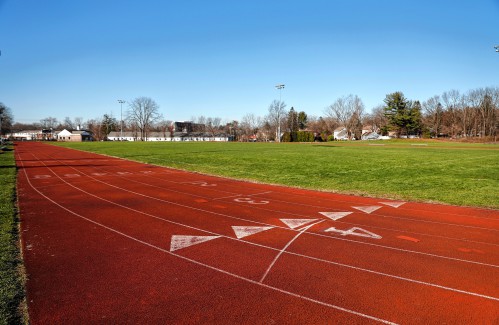Sensible approach needed in artificial turf talks
Published: 12/12/2022 1:46:10 PM
Modified: 12/12/2022 1:45:39 PM
In public comment to the Amherst Town Council, Dr. John Staudenmayer of UMass Amherst, an established expert at assessing environmental cancer risk, states that “there are ways to make a turf field without ‘tire crumb’ and also with minimal PFAS in the artificial grass.”
He further states: “Doing our best to minimize the amount of synthetic, non-degradable plastic we put into the environment seems like a sensitive goal (this is why I strongly support the better versions of turf others have proposed), but as with all decisions, we should assess the tradeoffs without being distracted by alarming claims that are not supported by science.”
It’s been disheartening to see the tone of the high school field discussion overtaken by a flurry of last-minute objections, eroding years of thoughtful planning and considered decision making with attempts to frame the question as a simple and strong choice of safety versus money.
All residents, parents and public officials care about ensuring student safety, meeting student needs and spending public money wisely, whatever our thoughts and feelings on playing surfaces happen to be. The challenge is how to respond appropriately to genuine concerns without overreacting.
Confirmation bias can form an impenetrable wall of belief that facts and reason cannot be overcome, so I will not try to reach those who (for various reasons) will continue to use repetition and volume to create confusion and make it harder to sort things out clearly. But for the rest of us, consider:
■ The state Department of Public Health concluded in 2020 that “To date, scientific research mostly concludes that adverse health effects from using artificial turf fields are unlikely.”
■ The state PFAS Interagency Task Force, funded by the state Department of Environmental Protection in 2022 and led by known PFAS expert Dr. David Reckhow of UMass Amherst, did not count artificial turf as a product of high concern.
■ For these and other reasons, Sen. Jo Comerford’s oft-cited bill to phase out consumer products with PFAS (which I enthusiastically support) states does not include artificial turf fields.
Despite assertions from various websites and groups, scientifically credible sources vetted by independent review have not supported claims that artificial turf harms the environment or health.
And yet we can still take reasonable steps in response to public concerns. Rather than reacting in fear, responding with alarm and holding urgently needed projects, our town can be a model of responsible action and sensitive resolution to a complicated issue.
We’ve known for years that our school fields don’t come close to providing enough playing time for students. Adding one artificial turf field and keeping all other fields grass solves this problem by providing many more hours of use than would otherwise be possible with grass alone.
We can choose from recycled and recyclable materials with minimal PFAS; use organic natural infill options that also address issues of moisture and temperature; and we have experts at UMass and other state agencies to help advise on these selections.
We have a brief but important opportunity to meet this moment in the most responsible way. I remain hopeful that our community will choose to do so.
Peter Demling is an Amherst resident and member of the Amherst-Pelham Regional School Committee.


Comments are closed.